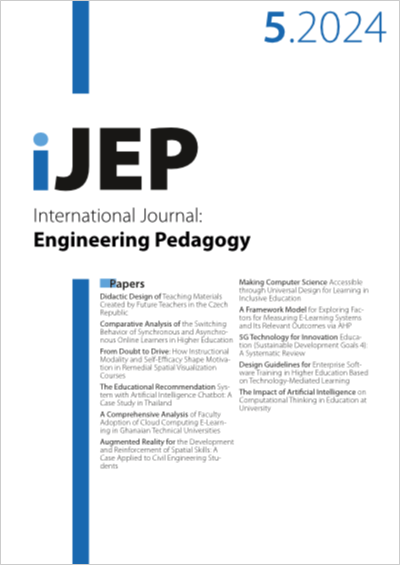Making Computer Science Accessible through Universal Design for Learning in Inclusive Education
DOI:
https://doi.org/10.3991/ijep.v14i5.48811Keywords:
Computer Science, equity, accessible, instructional materials, teaching strategies, universal design of learning, inclusive educationAbstract
The field of technology and computer science (CS) is developing dynamically. Just as anyone can learn computers at any age, students with special educational needs (SEN) also aspire to acquire IT (information technology) knowledge on an equal footing with all other students. However, one of the obstacles facing students with SEN is the lack of educational materials and programs for CS in secondary schools. The authors have designed teaching materials and assignments that promote inclusion. This study aims to evaluate the impact of teaching resources developed based on universal design for learning (UDL) to make the school’s CS course accessible to all students. The experiment involved 16 students and five teachers. For 8 weeks, students studied computer science using training materials based on UDL. Assessment of knowledge outcome indicators, particularly programming skills, was conducted before and after the experiment. After studying computer science through specific tasks, the interviewees demonstrated a higher level of assimilation of the subject, as indicated by the subsequent test results (mean = 12.13, standard deviation = 1.20), compared to the pre-experimental test (mean = 8.94, standard deviation = 1.12). The study demonstrated that using special UDLbased tasks to teach CS makes it more accessible and has a positive impact on students with special educational needs.
Downloads
Published
How to Cite
Issue
Section
License
Copyright (c) 2024 Gulnaz Salgarayeva, Aigul Makhanova

This work is licensed under a Creative Commons Attribution 4.0 International License.



